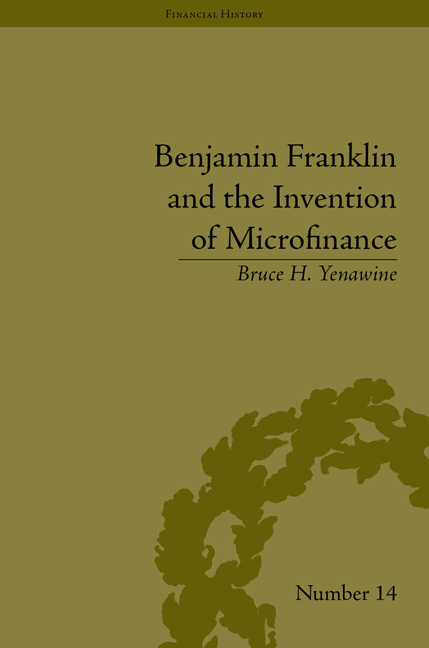Book contents
- Frontmatter
- CONTENTS
- Acknowledgements
- Biography of Bruce Yenawine
- Introduction
- 1 Franklin's Intent: The Autobiographical Origins of the Codicil
- 2 Franklin's Intent: The Sources of Political and Economic Concepts
- 3 Boston: The First Century
- 4 Philadelphia: The First Century
- 5 The Centennial in Boston and Philadelphia
- 6 Boston: The Second Century
- 7 Philadelphia: The Second Century
- 8 Bicentennial: Boston and Philadelphia
- Conclusion: Virtues in Conflict
- Appendix A Transcription of the 1789 Codicil
- Appendix B Boston Artisan List
- Appendix C Philadelphia Artisan List
- Appendix D Summary of Litigation and State Laws
- Appendix E Chronology
- Appendix F Franklin's Calculation and Actual Value
- Notes
- Works Cited
- Index
4 - Philadelphia: The First Century
- Frontmatter
- CONTENTS
- Acknowledgements
- Biography of Bruce Yenawine
- Introduction
- 1 Franklin's Intent: The Autobiographical Origins of the Codicil
- 2 Franklin's Intent: The Sources of Political and Economic Concepts
- 3 Boston: The First Century
- 4 Philadelphia: The First Century
- 5 The Centennial in Boston and Philadelphia
- 6 Boston: The Second Century
- 7 Philadelphia: The Second Century
- 8 Bicentennial: Boston and Philadelphia
- Conclusion: Virtues in Conflict
- Appendix A Transcription of the 1789 Codicil
- Appendix B Boston Artisan List
- Appendix C Philadelphia Artisan List
- Appendix D Summary of Litigation and State Laws
- Appendix E Chronology
- Appendix F Franklin's Calculation and Actual Value
- Notes
- Works Cited
- Index
Summary
Long before Franklin's death in 1790, the debate over the Bank of North America created by the Pennsylvania legislature in 1781 had stimulated widespread opposition from artisans who had been excluded from access to the bank's credit and who objected to the concentration of wealth and commensurate power in a small minority of citizens. Access to capital posed the greatest obstacle to economic development in Philadelphia and Franklin responded in the 1789 codicil to his great need with his self-styled ‘bank’ of capital for aspiring artificers. The tension between the exclusionary policies of the Federalists of the 1790s and the mechanics interest in Philadelphia continued to build, notwithstanding the artisans support for the new US Constitution and a Bill of Rights.
The largest of forty-six Democratic-Republican Societies created from 1793 to 1798 nationwide, the Philadelphia-based Democratic Society of Pennsylvania, was considered the ‘mother’ chapter and consolidated the artisans's belief in popular sovereignty and egalitarianism. Thirty-three percent of the membership of the club was drawn from craft trades. The Democratic Society expressed concern over issues such as the frequency of elections, the responsiveness of representation, the availability of credit, the education of the people, the management of debt, foreign relations, taxation and the dangers of a standing army. The artisans of Philadelphia found their political voice through the Democratic Society.
- Type
- Chapter
- Information
- Benjamin Franklin and the Invention of Microfinance , pp. 55 - 72Publisher: Pickering & ChattoFirst published in: 2014



